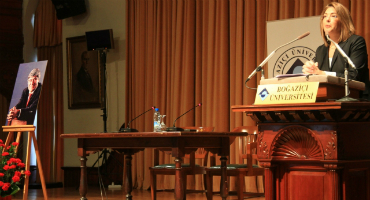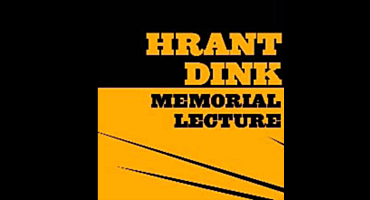Silenced but Resilient: Language and Memory in Anatolia and Neighboring Regions
Sabancı University in collaboration with the Hrant Dink Foundation and Anadolu Kültür
We are pleased to announce our third workshop in memory of Hrant Dink. The theme of this year’s workshop is “Silenced but Resilient: Language and memory in Anatolia and Neighboring Regions".
The early twentieth century witnessed the dissolution of multiethnic and multilingual empires in Eastern Europe and the Middle East. Incipient nation-states aspired to create homogeneous identities whereby new cultural hierarchies emerged and languages were suppressed in favor of a single national language. Similarly, the construction of a single historical narrative affected the transmission through memory of other histories and identities. In the context of transnationalism, democratization, and identity politics, however, the recent emphasis on other memories and languages is making it possible to reevaluate the role of language politics as well as the relationship between the past and the present.
Our purpose in this year’s Workshop is to offer a platform for exploring and discussing recent approaches to issues of language and memory. At the turn of the twenty-first century, the relationship of language and memory with history, the law, politics and culture constitutes a site of vibrant debate in Anatolia and neighboring regions. We would thus like to encourage proposals for papers on topics including (but not limited to):
- Linguistic erosion or extinction; interrupted linguistic and cultural transmission in the private and public sphere; forms of resistance to attempts at interruption and extinction
- Law and language: Freedom of speech; discriminatory legal language; linguistic multiplicity and constitutional language(s)
- Discriminatory language and the language of violence in politics, education, and the media
- The role of the public intellectual in language (of) politics and engagement with memory
- Political translation and communication between different forms of identity politics
- Official, popular, and oppositional representations of violence, conflict, trauma, and loss
- Political mechanisms to address wrongdoing in the past and their use of linguistic and memorial representation
- The encounter, distinction, and interpenetration between history and memory
- (Re)constructions of class, gender, “race” and ethnicity in recent works of memory
- Rearticulations of the past through literature, the arts, music, cinema, and other cultural forms
- In keeping with Hrant Dink’s legacy of struggle for greater freedom of expression, the commitment to linguistic heritage and interaction, the enhancement of social communication, and a rigorous engagement with the past, we welcome papers shedding light on language and memory as dynamic dimensions of society in Anatolia and neighboring regions.



